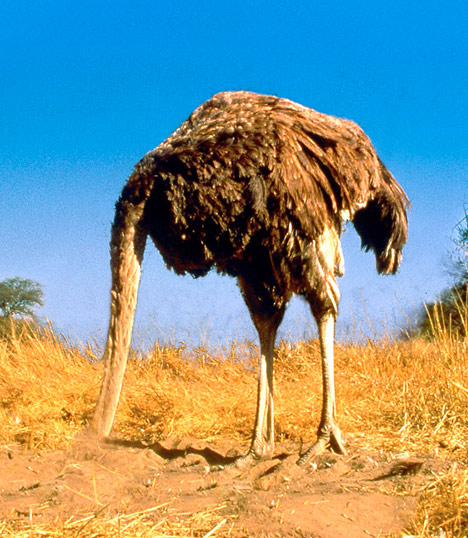I am Gopalam Karamchedu also known as Vijayagopal. I am a writer communicator. I share my thoughts and the collections here. My interests include, books, management, classical music, culture, languages etc..Thanks to all the friends who make my efforts meaningful. You are welcome to add material here. Write to me if you want to contribute.
Saturday, October 31, 2009
Sumati Satakam 11
Thursday, October 29, 2009
Dwaram Narasinga Rao - Violin
 Narasinga Rao Naidu, son of Dwaram Venkatakrishniah Naidu who was the elder brother and guru of legendary Dwaram Venkataswami Naidu, had his training from his father and Venkataswamy Naidu. He worked as violin lecturer and principal of M.R.Government Music College at Vizianagaram for many years and was known as a great guru who treated his scores of disciples with affection.
Narasinga Rao Naidu, son of Dwaram Venkatakrishniah Naidu who was the elder brother and guru of legendary Dwaram Venkataswami Naidu, had his training from his father and Venkataswamy Naidu. He worked as violin lecturer and principal of M.R.Government Music College at Vizianagaram for many years and was known as a great guru who treated his scores of disciples with affection.Monday, October 26, 2009
Ostrich Head in Sand
 So will you ever see an ostrich with its head in the sand? Not naturally – but it’s a wacky world that we live in. On the globalgourmet.com homepage, Claire and Monty Montgomery describe how they visited the Brandywine Ostrich Ranch in Hemet, California, to see and eat ostrich. The owner, Chip Polvoorde, told them how he helped get an ostrich’s head into a hole in the ground, for a movie shoot. Chip’s friend first dug the hole, laced it with yummy ostrich food, and once the unsuspecting bird had shoved its head into the hole, held it there with sheer brute force until they got their shot.
So will you ever see an ostrich with its head in the sand? Not naturally – but it’s a wacky world that we live in. On the globalgourmet.com homepage, Claire and Monty Montgomery describe how they visited the Brandywine Ostrich Ranch in Hemet, California, to see and eat ostrich. The owner, Chip Polvoorde, told them how he helped get an ostrich’s head into a hole in the ground, for a movie shoot. Chip’s friend first dug the hole, laced it with yummy ostrich food, and once the unsuspecting bird had shoved its head into the hole, held it there with sheer brute force until they got their shot. Sunday, October 25, 2009
Chembai Old LP
This is the new link and it works.
Saturday, October 24, 2009
Ramnad Krishnan - Mummoortlu - Athana
 Listen to an excellent Athana and the Tyagaraja masterpiece in the inimitable voice of Ramanthapuram Krishna Iyer or Ramnad Krishnan as he is popularly known.
Listen to an excellent Athana and the Tyagaraja masterpiece in the inimitable voice of Ramanthapuram Krishna Iyer or Ramnad Krishnan as he is popularly known.
|
Wednesday, October 21, 2009
A page from the diary

I wrote these lines on 30th October 1999.
I am sure I have changed my stand.
I have shared my brain with many, including you now!!
మెదడును పొట్లం కట్టి మంచం కింద దాచుకున్నాను.
ఏ పత్రికకూ పంపించలేదు.
బజార్లో పంచనూ లేదు.
మెదడును కుదువపెట్టి నెలకింత తెచ్చుకు తిందామని ప్రయత్నం
వాళ్లు నామెదడును అరగదీసి గంధంగా నాకే పూస్తున్నారు.
పైగా అది కంపు అంటున్నారు
అరగదీయడం మాత్రం మానడం లేదు.
అంతేగాదు, అమ్ముడవుతుందనుకున్న మెదడు, అంతంతకూ లోపల డొల్లయి పోతోందని అనుమానం కలుగుతున్నది.
కళ్లు ముక్కు చెవులనుంచి వచ్చే సందేశాలను అందులో నింపుకుంటుంన్నదేగానీ
తిరిగి బయటకు రానీయడం లేదు
అందుకే మెదడును పొట్లం కట్టి మంచం కింద దాచేశాను.
కదలడం తెలిసిన మెదడు మధ్యరాత్రెప్పుడో మంచాన్ని కుదేసినట్లుంది.
ఉలిక్కి పడి నిద్ర లేచాను
మెదడు నిశ్శబ్దంగా నవ్వుకున్నదని నాకనుమానం.
సందేహం తీర్చుకుందామంటే ఆలోచన నాదగ్గర లేదు.
అది లేందే ప్రశ్న లేదు.
ప్రశ్నించనిదే జవాబు రాదు.
అంతకు ముందటి ప్రశ్నలు జవాబులు మెదడులో కలగలిసి పోయి, చిక్కు పడిన దారంలా కనబడుతున్నాయి.
విప్పాలంటే విచక్షణ నాదగ్గర లేదు.
చెప్పింది చేయడం మాత్రమే తెలిసిన కండరానికీ, నాకూ ఇప్పుడు తేడా లేదు.
ఒకప్పుడు చెప్పకుండానే గుండెలా విరామం లేకుండా కొట్టుకునే వాడిని
ఇప్పుడు పేస్ మేకర్లో బలం తగ్గి బరువుగా కదులుతున్నాను.
ఇలాంటి కండరానికి ఇక మెదడుతో పని ఏమిటి?
అందుకే మెదడును పొట్లం కట్టి మంచం కింద దాచుకున్నాను
సందేహం తీర్చుకోవాలని అనిపించడం లేదు.
దాన్నిరిమోట్ కంట్రోల్ తో కదిలిస్తున్నారనీ, చదివేస్తున్నారనీ నా అనుమానం
నిద్దరొస్తున్నది.
మెదడు కుదిపేస్తుందేమోనని భయం.
అందుకే నిద్దరొస్తున్నది.
కండరం నిద్రపోతుంది.
మెదడు నిద్రపోదు.
జాగ్రత్త.
I have bundled my brain in a packet and hidden it under the cot.
I have not sent it to any magazine.
Not even distributed in the market.
The effort is to pawn the brain and get some monthly income.
But they are grinding my brain into paste and anointing me with it.
Moreover they say it stinks!
Still they continue to grind it.
What I thought will be sold, is getting empty inside, I doubt.
It is filling itself with the messages received from the eyes, nose and the ears and not letting anything out.
Only hence, I have bundled it and hidden under the cot.
Brain, that knows to move, looks like shook the cot in the middle of the night.
I was shaken out of sleep.
I doubt that the brain laughed silently.
To clear my doubt,
I do not have the ideas with me.
Without them there is no question.
No answer comes forth without a question.
Earlier questions and the answers are mixed up and are looking like a tangled mass of thread.
To untangle it I do not have the discrimination with me.
There is no difference between me and a muscle that only obeys a n order.
At one point of time I used pulsate like a heart without any command.
Now, the pacemaker has grown week and I am ticking very weak.
What has such muscle got to do with the brain?
Only hence, I have bundled up the brain and hidden it under the cot.
I have doubt that someone is manipulating with a remote control and playing with it.
I do not have the urge to clear the doubt.
I am sleepy.
I am afraid that the brain will shake me up.
That is why I am sleepy.
Muscle goes to sleep.
Mind would not.
Beware!
Monday, October 19, 2009
Chinta Deekshitulu - Children's Literature
Chinta Deekshitulu Sahityam
1891 – 1960

Sri Velaga Venkatappayya right at that time of publication only wrote that the works of Deekshitulu were not available in print for three decades. The reason given was very interesting. All the library copies were worn out because children read them too often. That sounds very interesting.
Mr.B. Subbarayan, before he departed saw to it that “Hanumantuni Toka” a poetic work of Deekshitulu was printed along with excellent colour illustration by none other than Bujjai. The book must be available with Andhra Mahila Sabha’s Literacy House at Hyderabad. That reminds me the absence of a copy in my collection. I asked about the original art work in big size of the book, and Subbarayan told that it is safe in his personal collection. I wish the family takes care of thousands of books he had.
Now to Sri Chinta Deekshitulu and his works.
The book published by the centenary committee contains more than 300 pages. There are children’s songs, stories, novels, humor, translations and other works included here. All of them are the best of the examples of fine children’s literature.
I am sure this book was printed in limited numbers and distributed among people attending the programme. There is no price mentioned anywhere. So, there is no probability of finding it in book stores. I wish somebody takes the rights and prints the works again.
Till then best I can do is to bring to a glimpse of the contents.
కవిత
పక్కున సూర్యుడు నవ్వాడంటే
పట్టపగలు ఈ లోకముకు
పక్కున చంద్రుడు నవ్వాడంటే
చల్లని వెన్నెల జగములకు
పక్కున పాపాయి నవ్వాడంటే
పరమానందం నీకూ నాకూ
నవ్వడమెందుకు నిజము పలకవే
అవునో కాదో అలివేణీ.
నేను పెద్దవాడనైనాక – కథ
రెండెద్దులూ ఒక బండీ కొంటాను. ఒక కొరడా కట్టుతాను. దానికి పువ్వులు కడతాను. ఎద్దుల మెడ నిండా గంటలు కట్టుతాను. ఎద్దులను బండి కట్టి, కొరడా చేత్తో బుచ్చుకొని సాయంత్రం దాకా తోలితోలి కొండల అవతలికి వెళ్లిపోతాను. కొండలవతల నక్షత్రాలూ అవీ ఉన్నాయి. వాటితో అక్కడ ఆడుకుంటూ కూచుంటాను. నాన్నలాగ ఎప్పుడూ కచేరీకి వెళ్లను.
నేను పెద్దవాడనయినాక!
పేద్ద నిచ్చెన ఒకటి చేయిస్తాను. ఆ నిచ్చెన భూమిలో పాతుతాను. ఆ నిచ్చెన ఎంతో పేద్దది. అది ఎక్కి ఆకాశం దగ్గరిదాకా వెళ్ళుతాను. వెళ్ళి ఆకాశాన్ని ముట్టుకుంటాను. నిచ్చెన చివార నిలబడి నక్షత్రాలు కోస్తాను. కోసి జేబులో వేసుకుని ఆడుకుంటాను. ఎప్పుడూ అక్కడే ఉండిపోతాను. కిందకు యెప్పుడూ దిగిరాను. నయినా
నేను పెద్దవాడనయినాక!
ఎన్నో రూపాయిలు నా పెట్టినిండా ఉంటాయి. ఆ రూపాయిలన్నింటితోటీ సెనగపప్పు, కారప్పూసా కొనుక్కుంటాను. నాన్న కారప్పూస కొనుక్కోవడానికి రోజూ ఒక డబ్బేగాని ఇవ్వడు. యెవ్వరికీ పెట్టకుండా అంతా నేనే తినేస్తాను. అమ్మ కారప్పూస ఎవరికీ పెట్టనివ్వదు. నేను ఆవుదూడలకీ కుక్కపిల్లలకీ మాత్రం పెట్టుతాను.
నేను పెద్దవాడనయినాక!
ఇంటిచుట్టూరాను పెరట్లోకి అన్నీ పూలమొక్కలు పాతుతాను. రోజూ రెండుపూటలా వాటికి నీళ్ళు పోస్తాను. అవి పువ్వులు పూస్తాయి. పువ్వులన్నీ దండలు గుచ్చి మెళ్ళో వేసుకుంటాను.
నేను పెద్దవాడనయినాక!
ఒక వాచీ కలమూ కొనుక్కుంటాను. వాచీ ఎప్పుడూ తిప్పుతో కూచుంటాను. కలంతో ఎప్పుడూ ఉత్తరాలు రాస్తుంటాను.
నేను పెద్దవాడనయినాక!
బళ్లోకి అసలు వెళ్ళనే వెళ్ళను. కావలిస్తే అమ్మనీ నాన్ననీ వెళ్ళమంటాను. నేనేమో సైకిలూ కారూ కొని ఊరంతా షికారు తిరిగివస్తాను.
నేను పద్దవాడనయ్యాక ఎన్నెన్నో చేస్తాను.
After I grow up!
I’ll buy two bullocks and a cart. I’ll also make a lash. I’ll tie flowers to it. I’ll tie bells around the necks of the bulls fully. I’ll tie the bullocks to the cart and with the lash I my hand, I’ll travel till thee vening and reach the other side of the hills. There are stars and the other things on the other side of the hills. I’ll sit there playing with them. I’ll never go the office like father.
After I grow up!
I’ll get one beeg ladder made. I’ll erect in the earth. The ladder will be really beeg. I’ll climb on it and reach the sky. I’ll touch the sky there. Standing on the top of the ladder I’ll reap stars. I’ll put them in my pocket and play with them. I’ll stay there for ever. I’ll never come down! OK!
After I grow up!
My box will be full of lot of rupees. With all those rupees I’ll buy Bengal gram and Khara namkeen. Father never gives more than one pie in a day to buy Khara. I’ll eat off all of it without giving any one. Mother does not allow giving Khara to anyone. I’ll give it to calves and pups only.
After I grow up!
I’ll plant a lot of flowering plants all around in the yard around the house. I’ll give them water twice daily. They will flower. I’ll make garlands and put them around my neck.
After I grow up!
I’ll buy a watch and a pen. I’ll keep winding the watch always. With the pen I’ll keep writing letters always.
After I grow up!
I’ll never go to school. If it comes to that I’ll ask mother and father to go there. I’ll buy a cycle and a car, and keep going around the town and come back.
I’ll do lot after I grow up!
That must be the best of the story I ever read! The novels are master pieces. They are very good material for TV serials. I wish more people could read Sri Deekshitulu’s works!

